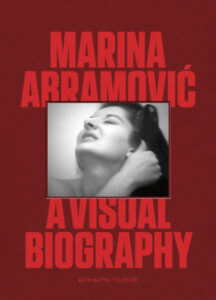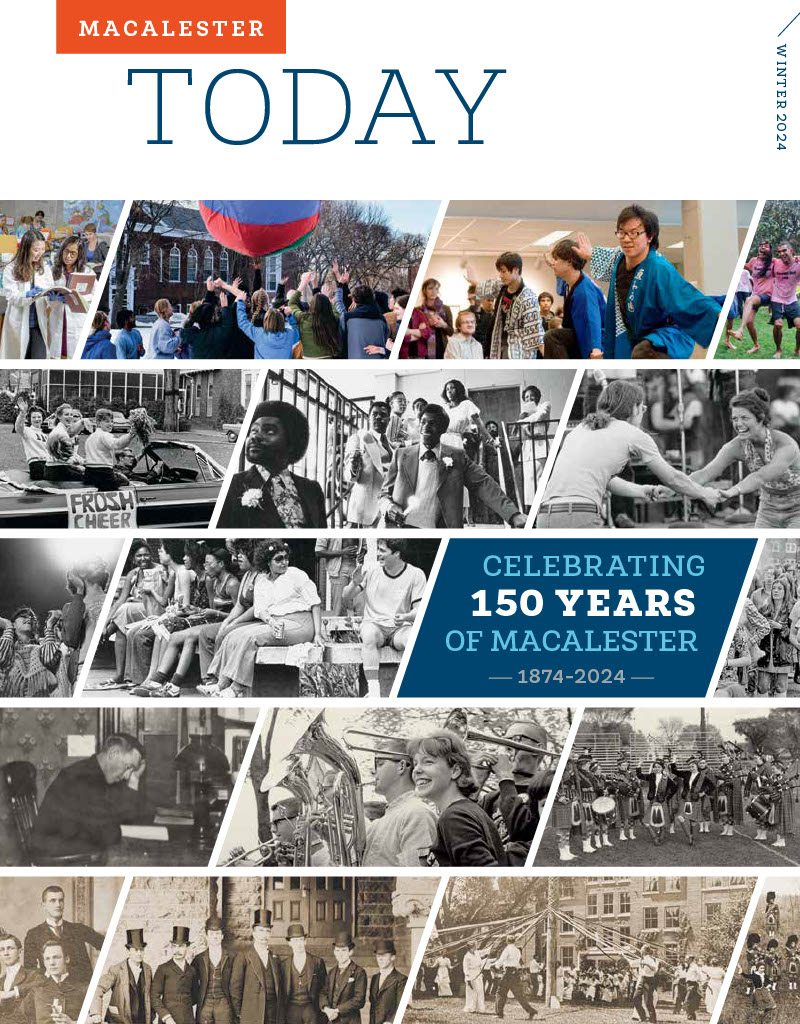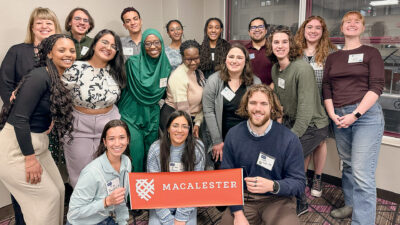
David Seitz ’10. A Different Trek: Radical Geographies of Deep Space Nine (University of Nebraska Press, 2023)
Geographer David Seitz ’10, an associate professor of cultural geography at Harvey Mudd College, spoke about his new book at Macalester in October. We caught up with him to learn more. (Interview by Catherine Kane ’26.)
Q: What’s the inspiration behind the book?
A: I have pretty much always been a Star Trek fan, but I think what’s interesting about it is that it has survived its viewers’ political evolutions. Sometimes, you end up leaving your childhood attachments behind, but there was something about Deep Space Nine, in particular within the Star Trek canon, that I felt had survived people’s own political and intellectual awakenings.
Q: What drew you to Star Trek in your scholarship?
A: When interviewing at Harvey Mudd, which is a hybrid STEM and liberal arts school, I did a teaching demonstration in which I incorporated Star Trek, and I got the job. Now, I teach a class every year called Star Trek: Race, Gender, and Class, where I use Star Trek to have a conversation with students about contemporary critical theory. They get to write about their own interests in the Star Trek canon and social issues they care about.
Q: How did your time at Macalester shape this book?
A: I had forgotten about Star Trek when I was at Macalester, but I picked it up again in 2010 after I graduated with a degree in political science. I spent the summer after graduating from Macalester watching Deep Space Nine for the first time from start to finish. At that moment, I was rediscovering Star Trek while noticing how what I had learned at Macalester enabled me to interpret it critically in a new way.
Q: What do you hope people who read your book take away from it?
The book has two audiences: One is Star Trek fans, and I hope they take away both an exposure to and validation of intersectional leftist political analysis. It invites fans to consider how something they already know and love is inviting them to take up other kinds of political and ethical commitments in the world. The second audience is academics—for them to take Star Trek more seriously. To dismiss Star Trek is a loss because we know that popular culture has profound political influence.
Tim O’Brien 68. America Fantastica (HarperCollins, 2023)
The National Book Award-winning author spent a day back on campus in November meeting with English students, reading from his new novel, and speaking about the book and its origins during a Q&A with English Department chair and professor Peter Bognanni ’01 and members of the Mac community.
“The book is organized around a road trip across the Midwest and the western and southern states of America. Late-night radio is coming on at two in the morning or four in the morning. The talk shows and internet chat rooms are full of conspiracies. [My characters] are on the run from a bank robbery.
For me it was a journey that began at Macalester when I first read The Odyssey. That’s a road trip in a lot of ways, isn’t it? It’s a Mediterranean road trip, sort of a watery one.
I had really fallen in love with The Odyssey here at Macalester…And it, more than, say, Kerouac, was a model for what I wanted to do. People going through an America with one contagion colliding with another—a contagion of COVID colliding with this mythomania. It’s a real disease. If you look up the definition of pseudologia fantastica, it’s another word for describing a psychological syndrome or compulsive lying. It doesn’t stop. It’s transmitted from person to person.” —Tim O’Brien ’68
 Laura Loomis ’88. The Star-Crossed Pelican (Thinklings Books, LLC, 2023)
Laura Loomis ’88. The Star-Crossed Pelican (Thinklings Books, LLC, 2023)
David Hoppe ’73 and Brian Berlinger ’73. Mondo POTUS: An American Love Story (Victory Dog Books, 2023)
Julie Dirksen ’91. Talk to the Elephant: Design Learning for Behavior Change (New Riders, 2023)
Elinor Pierce ’88. Pluralism in Practice (Orbis, 2023)
Xavier Paulson ’22. Orbiting What Remains, and (part 2) The Laser From Above (Paulson Literary LLC, 2023)
Professor Emeritus Wayne Roberts. I Am A Teacher (Amazon, 2023)
Alex Hortis ’95. The Witch of New York: The Trials of Polly Bodine and the Cursed Birth of Tabloid Justice (Simon & Schuster, 2023)
Katya Tylevich ’06 and Marina Abramovic. Marina Abramovic: A Visual Biography (Laurence King, 2023)
Guy Schaffer ’07. Composting Utopia: Experimental Infrastructures for Organics Recycling in New York City (University of Massachusetts Press, 2023)
SherAli Tareen ’05. Perilous Intimacies: Debating Hindu-Muslim Friendship After Empire (Columbia University Press, 2023)
Amy Coddington ’08. How Hip Hop Became Hit Pop: Radio, Rap, and Race (University of California Press, 2023)
February 16 2024
Back to top





